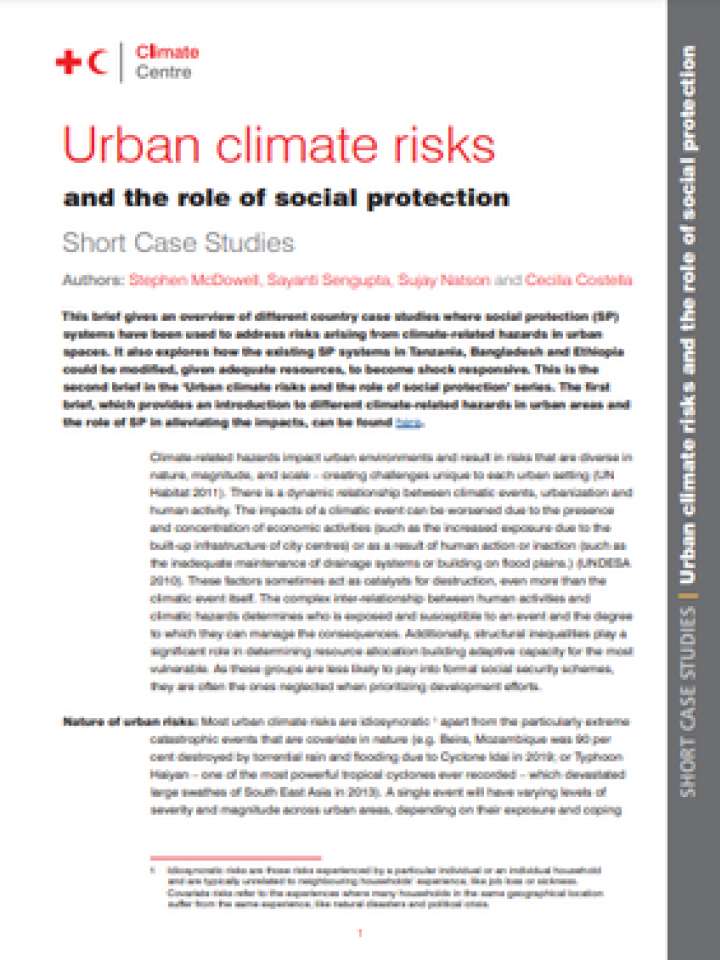Urban climate risks and the role of social protection
This brief gives an overview of different country case studies where social protection (SP) systems have been used to address risks arising from climate-related hazards in urban spaces. It also explores how the existing SP systems in Tanzania, Bangladesh and Ethiopia could be modified, given adequate resources, to become shock responsive.
A few key challenges to keep in mind while considering SP for urban climate risks are:
- Often, when informal settlements are not recognized, they may not get assistance from municipal authorities.
- Daily migrants are not documented, meaning that daily wage labourers may lose income to floods in their urban workplaces, but may not get relief as they are not included in city registries.
- Investing in SP bears fruit in the long-term, which may not coincide with electoral cycles and, therefore, may lack support from political actors.
- SP insurance schemes may not be appropriate for most informal workers in urban areas.
- The impression that rural areas are more vulnerable than urban areas can undermine anticipatory efforts by actors.
- Financing will remain a big challenge for SP in urban areas; however, the possibility of including the private sector in this regard should be explored.
- Poverty in urban and rural areas looks different and manifests in different ways, so merely exporting SP schemes used in a rural context to be used in a city can result in disadvantages.
Explore further
